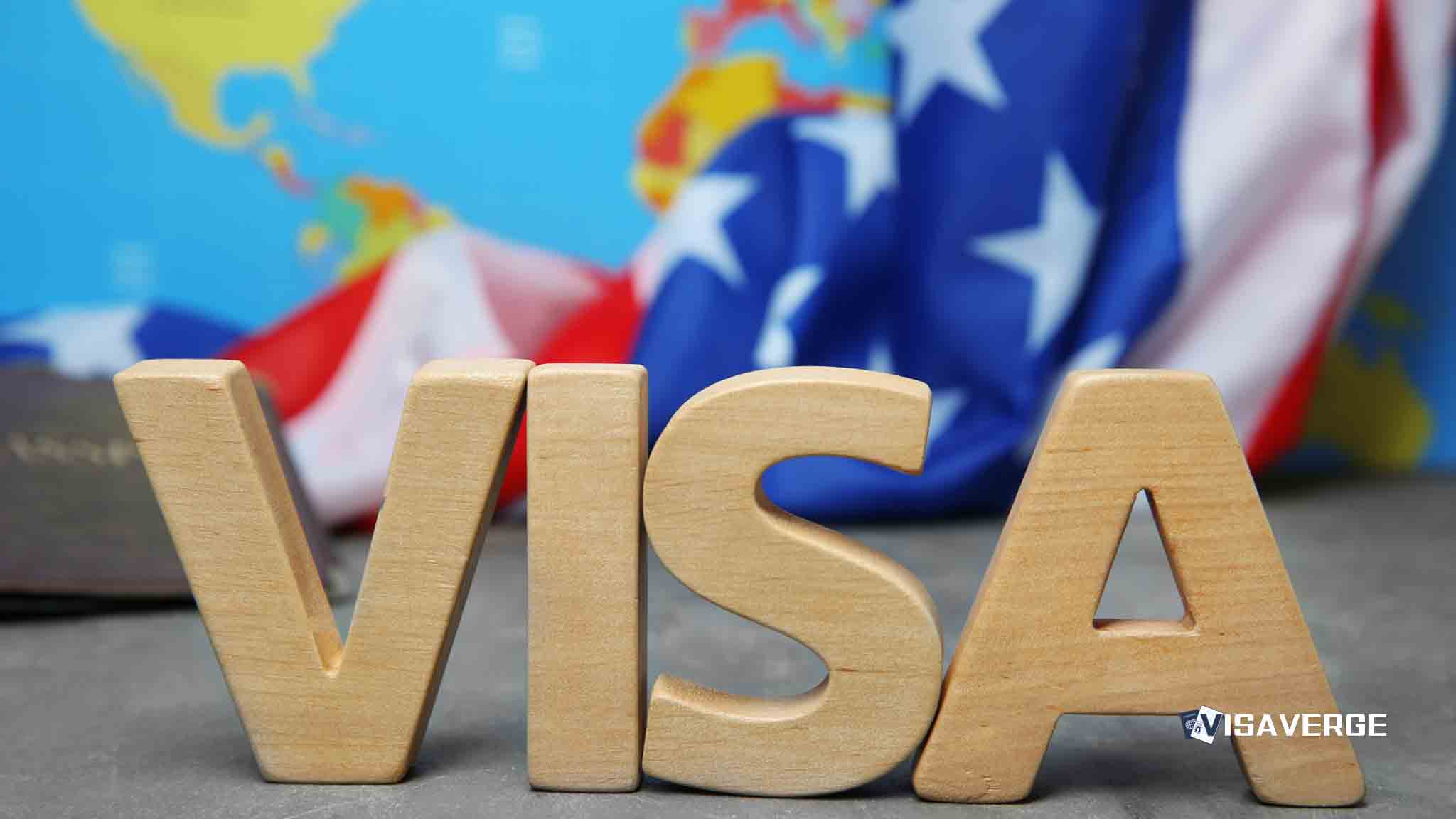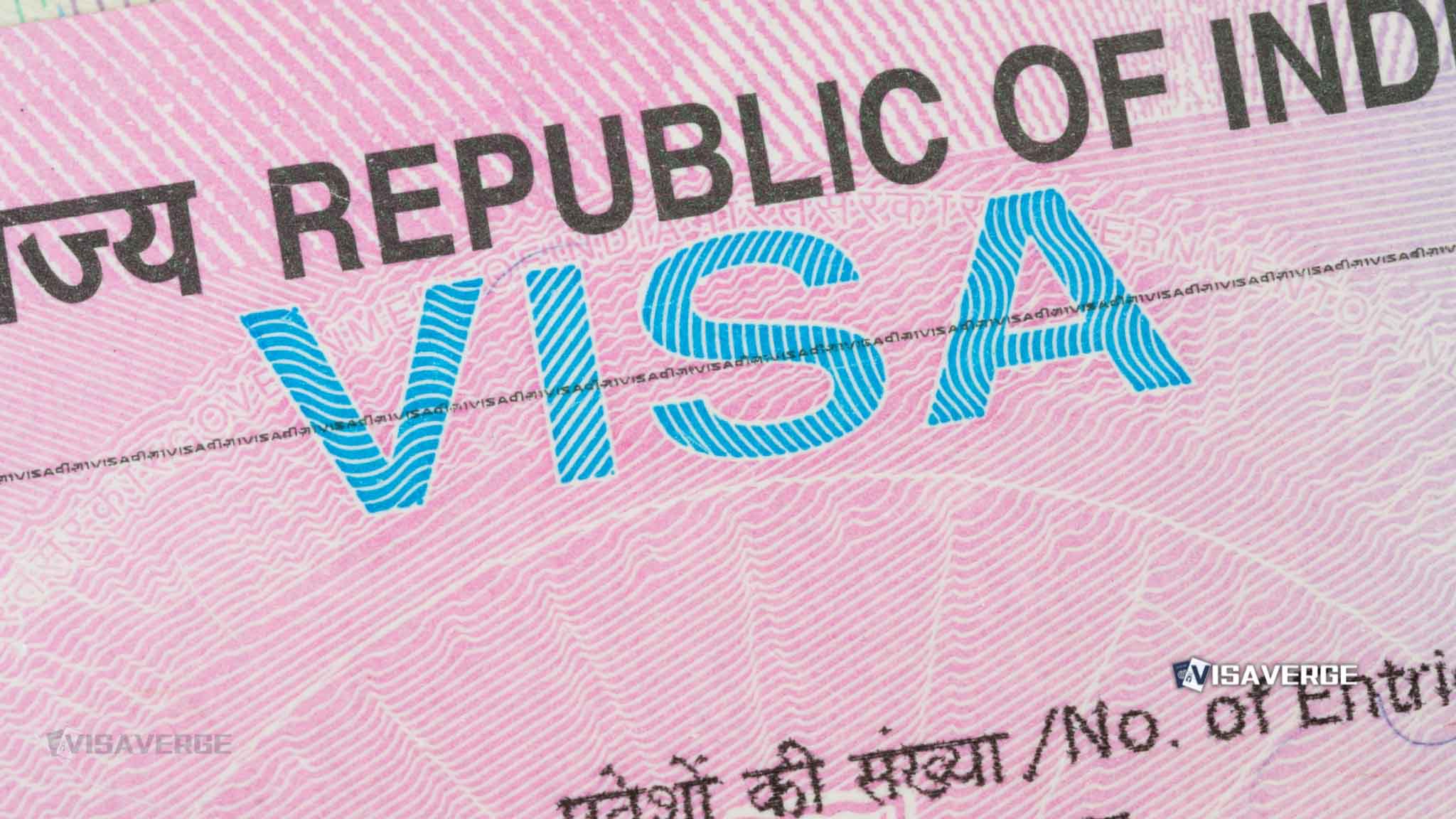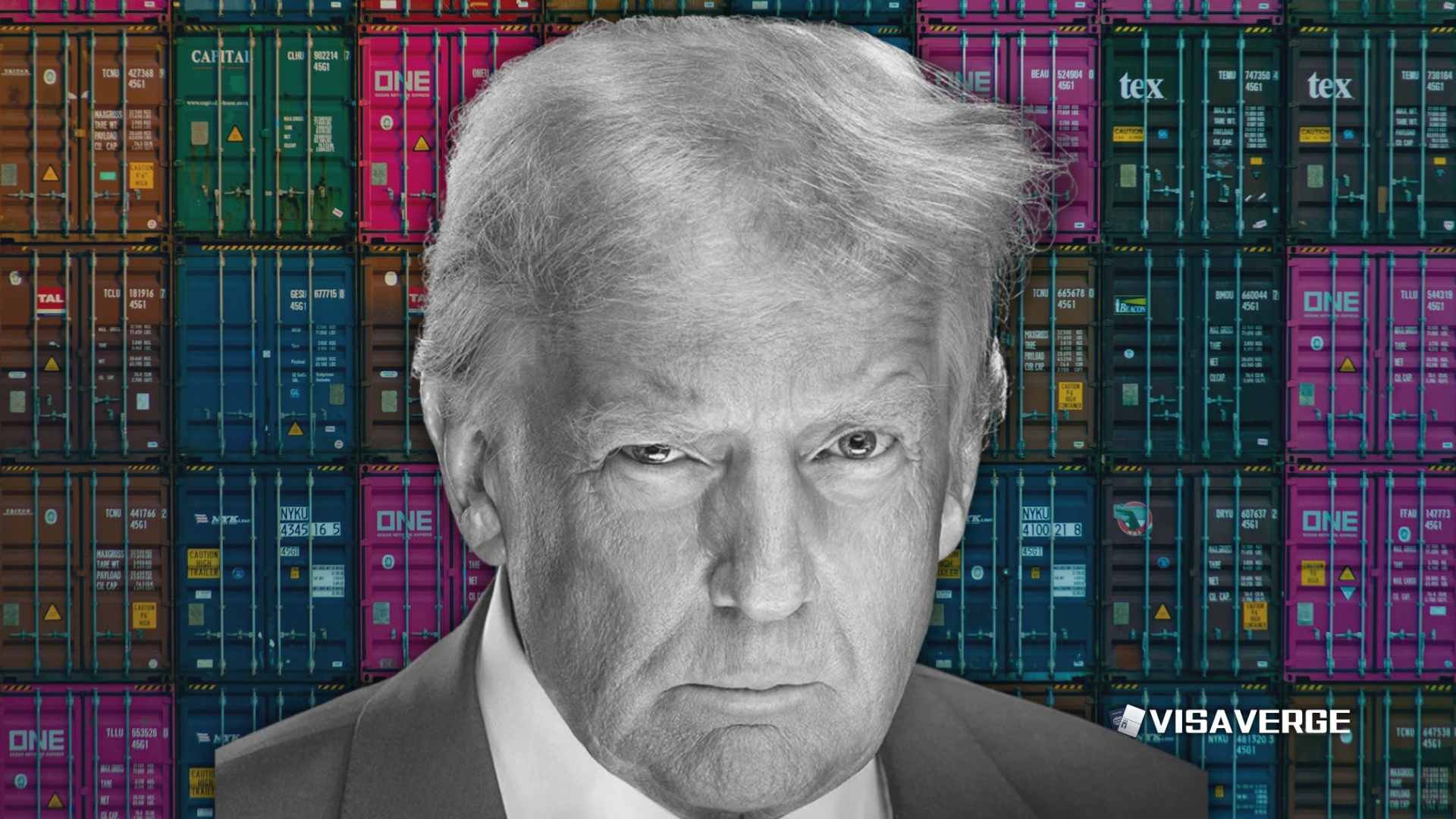Key Takeaways
• Melania Trump received an EB-1 visa in 2001, sparking debate on eligibility fairness.
• EB-1 visa requires ‘extraordinary ability’ proven by awards or significant achievements.
• June 2025 congressional hearing questioned Melania’s qualifications and visa system integrity.
A heated debate over the fairness and integrity of the United States 🇺🇸 immigration system erupted in late June 2025, centering on Melania Trump’s EB-1 “Einstein visa.” The controversy reached a peak during a congressional hearing titled “Restoring Integrity in the Visa Process,” where Representative Jasmine Crockett (D-TX) questioned whether Melania Trump’s modeling career truly met the high standards required for this elite visa category. The discussion has sparked widespread public interest, raising questions about how the EB-1 visa works, who qualifies, and whether the system is being applied fairly to all applicants.
What Happened: The Congressional Hearing and Public Reaction

On June 25 and 26, 2025, lawmakers gathered in Washington, D.C. for a hearing focused on the integrity of the U.S. visa process. Jasmine Crockett, a Democratic representative from Texas, took center stage by challenging the legitimacy of Melania Trump’s EB-1 visa, which she received in 2001. Crockett’s pointed remarks quickly spread across social media, fueling a national conversation about double standards and the need for transparency in immigration policy.
Jasmine Crockett stated:
“The math ain’t mathin’ here,” highlighting the difference between Melania Trump’s modeling career and the extraordinary achievements usually expected for EB-1 visa holders, such as Nobel Prize winners or Olympic medalists. Crockett also criticized the Trump administration’s tough stance on immigration, calling out what she sees as hypocrisy given Melania’s own path to citizenship.
Social media users joined the debate, with many expressing doubts about whether Melania Trump’s career met the “extraordinary ability” standard required for the EB-1 visa. The controversy has not only put Melania Trump’s immigration history under the microscope but also raised broader questions about fairness and consistency in the U.S. immigration system.
The EB-1 Visa: What Is It and Who Qualifies?
The EB-1 visa, often called the “Einstein visa,” is one of the most prestigious ways to get a green card in the United States 🇺🇸. It is officially known as the Employment-Based First Preference visa. This visa is meant for people who can show “extraordinary ability” in fields like science, art, education, business, or athletics. It is also available to outstanding professors, researchers, and certain multinational executives or managers.
Key requirements for the EB-1 visa include:
- Extraordinary Ability: The applicant must have national or international recognition in their field. This usually means winning major awards, being featured in important publications, or making significant contributions to their area of work.
- Evidence: Applicants must provide strong proof of their achievements, such as awards, published material, or letters from experts.
- Self-Sponsorship: Unlike many other visas, EB-1 applicants can apply on their own without needing a job offer if they meet the extraordinary ability criteria.
In 2001, only 3,376 EB-1 visas were issued out of more than one million green cards, showing how rare and competitive this visa is.
For more details on eligibility and requirements, you can visit the official USCIS EB-1 visa page.
Melania Trump’s Path to the EB-1 Visa
Melania Trump, originally from Slovenia, began her modeling career in Europe before moving to the United States 🇺🇸. According to her attorney, Michael Wildes, Melania applied for the EB-1 visa in 2000 and was approved in 2001. Wildes has stated that Melania self-sponsored her application, using her European runway work and magazine features as evidence of her extraordinary ability.
However, Melania’s case has been controversial for years. A 2016 Politico report claimed that she may have worked in the United States 🇺🇸 on a visitor visa before getting legal status, raising questions about her immigration journey. Experts remain divided on whether her modeling career truly placed her in the “top 2 percent” of her field, as the EB-1 visa requires.
Melania Trump became a U.S. citizen in 2006. Her case continues to be cited in debates about who should qualify for the EB-1 visa and whether the process is being applied fairly.
What Lawmakers and Experts Are Saying
Jasmine Crockett’s Criticism
Jasmine Crockett has been one of the most vocal critics of Melania Trump’s EB-1 visa. During the June 2025 hearing, she said:
“Let me remind y’all that Melania, the first lady, a model—and when I say model, I’m not talking about Tyra Banks, Cindy Crawford, or Naomi Campbell level—applied for and was given an EB-1 visa… you’re supposed to have some sort of significant achievement like being awarded a Nobel Peace Prize or a Pulitzer, being an Olympic medalist, or having other sustained extraordinary abilities and success in sciences, arts, education, business, or athletics. Last time I checked, the first lady had none of those accolades under her belt.”
Crockett’s comments reflect a broader concern that the EB-1 visa should be reserved for people with truly exceptional achievements, not just fame or connections.
Melania Trump’s Attorney Responds
Michael Wildes, Melania Trump’s immigration attorney, has defended her EB-1 visa, saying she met the requirements through her modeling work in Europe and her appearances in major magazines. He points out that the law allows for self-sponsorship if the applicant can show extraordinary ability, and that Melania’s application was approved by U.S. immigration officials.
Other Perspectives
Alex Nowrasteh, an immigration policy analyst at the Cato Institute, joked that Melania’s marriage to Donald Trump might count as an achievement, highlighting how subjective the EB-1 process can be. Meanwhile, some lawmakers, like Maxine Waters (D-CA), have previously called for Melania’s deportation, though Waters was not directly involved in the recent hearing.
How the EB-1 Visa Application Process Works
For those interested in how the EB-1 visa process works, here is a step-by-step overview:
- Determine Eligibility:
- The applicant must show extraordinary ability, be an outstanding professor/researcher, or be a multinational executive/manager.
- Gather Evidence:
- Collect documentation such as major awards, published material, or letters from experts in the field.
- Prepare the Petition:
- File Form I-140, Petition for Alien Worker with U.S. Citizenship and Immigration Services (USCIS).
- Submit Supporting Documents:
- Include all evidence of eligibility, such as awards, publications, and recommendation letters.
- USCIS Review:
- USCIS reviews the petition and may ask for more information if needed.
- Approval or Denial:
- If approved, the applicant can apply for a green card or adjust status if already in the United States 🇺🇸.
- Consular Processing:
- If the applicant is outside the United States 🇺🇸, they must attend an interview at a U.S. embassy or consulate.
The process is detailed and requires strong proof of extraordinary ability. For more information, visit the official USCIS EB-1 page.
Why This Matters: Policy Implications and Public Trust
The Melania Trump EB-1 visa controversy has raised important questions about the integrity of the U.S. immigration system. Many people worry that high-profile cases like this can damage public trust, especially if it appears that the rules are not being applied equally to everyone.
Key concerns include:
- Public Trust: When people believe that celebrities or those with connections can get special treatment, it can erode confidence in the system.
- Policy Scrutiny: Lawmakers are now considering changes to make sure that EB-1 visas are only given to people with truly extraordinary achievements.
- Impact on Immigrants: Legitimate EB-1 applicants may face tougher scrutiny and longer processing times as a result of the controversy.
- Employers and Sponsors: Companies and universities that sponsor EB-1 applicants may need to provide even more documentation to prove their candidates meet the high standards.
As reported by VisaVerge.com, the ongoing debate has led to calls for greater transparency and stricter enforcement of EB-1 eligibility rules. Some experts suggest that clearer guidelines and more rigorous review processes are needed to prevent abuse and restore faith in the system.
What’s Next? Possible Changes and Future Outlook
As of June 26, 2025, there have been no official changes to the EB-1 visa policy or its eligibility criteria. However, the congressional hearing and public outcry have put pressure on lawmakers and immigration officials to consider reforms.
Possible future developments include:
- Legislative Action: Congress may introduce bills to tighten EB-1 eligibility or increase oversight.
- Regulatory Changes: USCIS could issue new guidance or require more detailed documentation for EB-1 petitions.
- Continued Scrutiny: High-profile cases like Melania Trump’s are likely to remain in the spotlight, keeping pressure on policymakers to address any perceived loopholes.
Frequently Asked Questions
Was Melania Trump’s EB-1 visa legitimate?
Her visa was approved by USCIS, but many experts and lawmakers question whether her modeling career met the extraordinary ability standard.
What does this mean for other EB-1 applicants?
The controversy may lead to stricter documentation requirements and more thorough reviews for all EB-1 applicants.
Are there any changes to the EB-1 visa policy right now?
No official changes have been made as of June 26, 2025, but reforms are being discussed.
Key Facts and Figures
| Aspect | Details |
|---|---|
| Visa Type | EB-1 (“Einstein Visa”) |
| Year Issued | 2001 |
| Number Issued (2001) | 3,376 |
| Total Green Cards | Over 1 million |
| Current Status | No policy changes as of June 2025 |
| Key Stakeholders | Jasmine Crockett, Michael Wildes, Alex Nowrasteh |
| Official Resources | USCIS, Congressional Offices, Cato Institute |
Practical Guidance for EB-1 Applicants
If you are thinking about applying for an EB-1 visa, here are some steps you can take to strengthen your case:
- Collect Strong Evidence: Gather proof of your achievements, such as awards, published work, and letters from recognized experts.
- Be Thorough: Make sure your application is complete and well-organized. Missing documents can delay or hurt your case.
- Seek Professional Help: Consider working with an experienced immigration attorney who understands the EB-1 process.
- Stay Informed: Keep up with any policy changes or new requirements by checking the USCIS website.
Conclusion: What the Melania Trump EB-1 Visa Debate Means for Immigration Policy
The debate over Melania Trump’s EB-1 visa, fueled by Jasmine Crockett’s sharp questioning, has brought new attention to the standards and fairness of the U.S. immigration system. While Melania’s visa was approved under existing rules, the controversy has led to calls for clearer guidelines, more transparency, and stricter enforcement to ensure that only those with truly extraordinary achievements receive this rare visa.
For immigrants, employers, and policymakers, the case serves as a reminder that public trust in the system depends on fairness and consistency. As lawmakers consider possible reforms, all eyes will remain on how the United States 🇺🇸 balances the need for attracting top talent with the responsibility to uphold the integrity of its immigration process.
Learn Today
EB-1 visa → An elite U.S. visa for individuals with extraordinary ability in science, arts, or business.
Extraordinary ability → Exceptional skill demonstrated nationally or internationally, usually proven by major awards or recognition.
Self-sponsorship → The ability to apply for a visa without a job offer, based on personal achievements.
USCIS → United States Citizenship and Immigration Services, agency handling visa petitions and immigration applications.
Consular processing → Interview and visa issuance step at a U.S. embassy for applicants outside the country.
This Article in a Nutshell
Melania Trump’s 2001 EB-1 visa caused controversy during a 2025 congressional hearing questioning her qualifications. The EB-1 visa demands extraordinary achievement, sparking debate on fairness and policy reform amid public scrutiny of immigration integrity and transparency.
— By VisaVerge.com








Melanie is now a US citizen, so the kind of visa she was awarded is now moot, if she didn’t cheat to get it. If she hadn’t been awarded that visa by people, who supposedly had vetted her application, she could have applied for another kind. She has been a law-abiding citizen. Crockett sounds simply jealous, and doesn’t seem concerned about those who are here illegally and are being given taxpayer money, and, in too many cases, are breaking other US laws besides illegal entry.